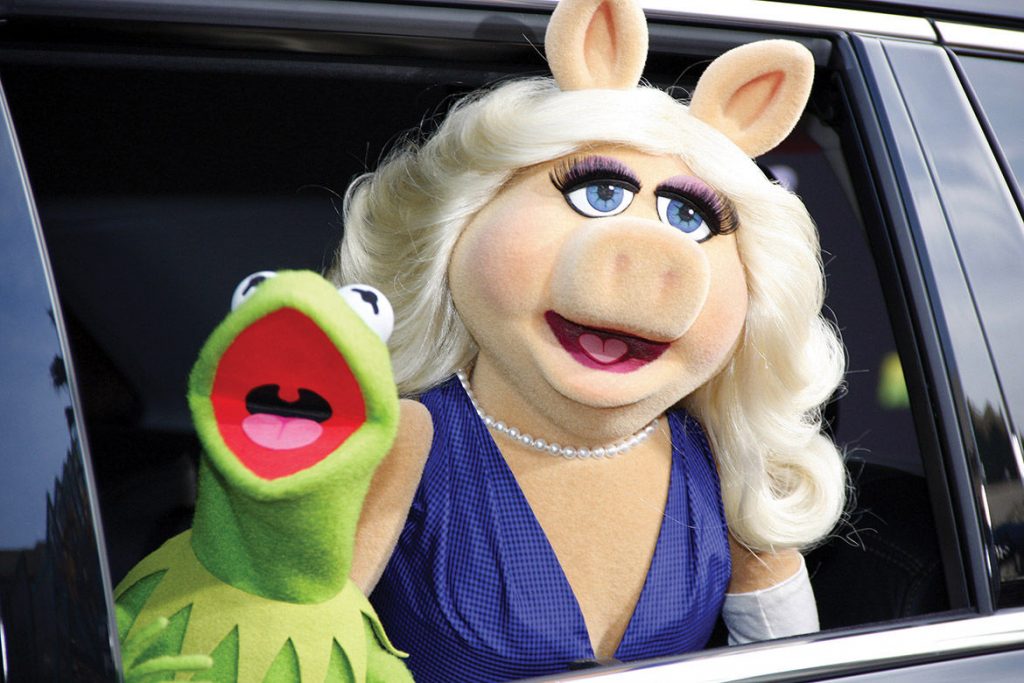I have a confession to make. I never watched a complete episode of “Sesame Street” from start to finish, although I feel I know the show well because of the way it has become a cultural mainstay for more than a generation.
I also never encouraged my children to watch “Sesame Street.” There was always just enough unreconstructed pre-councilor Catholic triumphalist in me to be wary of a show that was so intent on wanting to teach my children something other than just ABCs and one plus one is two.
According to the Catechism, my wife and I were the primary educators of our children anyway, so if they were going to get erroneous information it might as well come from a more intimate source.
Instead of PBS educational shows, we did let our kids watch (probably too much) Nickelodeon, but I was careful to also indoctrinate them with plenty of Warner Brothers cartoons from the 1940s and 1950s, where the only lesson being taught was never let a wise-cracking rabbit with a Bronx accent get a hold on a twelve gage shotgun, allow obnoxious road runners access to high explosives or purchase any product with the name ACME written on it and expect a good result to follow.
Like Bugs Bunny in his prime, the Muppets, Sesame Street regulars, managed to straddle that line where kids and adults forced to take their kids to Muppet movies, could both enjoy them.
The “adult” jokes were not “adult” humor, but clever one-liners or cultural references that could make an adult crack a smile while the child in the room appreciated the more physical nature of the Muppet comedic template. Their popularity soared and became a cottage industry for their creator Jim Henson as he moved from Sesame Street to first run syndication in the 1970s and 80s and into the big time with a string of very successful motion pictures.
The ridiculous nature of a “frog” and a “pig” being boyfriend and girlfriend was simultaneously charming to a child and amusing to an adult. The added nuance that Kermit’s muse, of whom he was so thoroughly smitten, was actually a self-absorbed shrew and nothing like the kindly and gentle Kermit, gave adults something more to chew on.
Thanks to ABC, the Muppets are back. And thanks to ABC again, they have been mutated.
Just as in nature, where mutated organisms are almost always detrimental to the species that experiences this kind of change, the Muppets as a brand and as a vehicle by which parents and their kids might indulge in a little shared television experience, has been seriously damaged and impaired.
I should have realized something was up when “news leaked” that Kermit had a new special friend. I have to hand it to the ABC marketing and PR team for being clever.
As stories appeared on multiple media platforms, we learned Kermit and Miss Piggy were no longer a pair and that Kermit had found a new significant other.
Of course his new flame is also a pig but she is demonstrably less challenged in the metabolism category than Miss Piggy. At first blush, I thought it was kind of cute. But in the context of the new ABC series that features the Muppets and from watching a few episodes, I found it both offensive and sad.
I wasn’t the only one, as the usual suspects in social network-land chimed in with their own versions of offense and defense of this new “edgy” adult-oriented Muppets series. I’m afraid I have to side with the soccer moms on this one.
But I have to wonder why it has to be this way. The Muppets are not “South Park,” a smutty show that started out as a show choked with more toilet humor than you’d get from a Bob Saget 20-minute standup routine. At least in “South Park” there is truth in advertising.
Not so with the Muppets, who, despite having a somewhat avant-garde pedigree with local New York television that goes all the way back to the middle of the last century, remained for all practical purposes, a kid-friendly zone. The number of double entendre and sledgehammer suggestive jokes in the first couple of episodes of the new Muppets television show makes it very clear that the show runners of this half-hour sitcom have no deep concern for that legacy.
They have opted instead for being in on the joke and for the joke to have a mandatory level of smut.
Smut is a word my dad, the full-time grocer and part-time theologian, would use. It’s an ugly word describing ugly things, and seeing a product that has been for decades marketed to children taken over by a bunch of 20-something whiz kids with their screenwriting degrees from prestigious Ivy League schools is sad. It’s also a form of child abuse.
Just as former childhood domains like Halloween have been usurped by adults, now Kermit and Miss Piggy must go the way of so many other one-time innocent avenues of escape children used to be able to enjoy with their parents and be sacrificed on an altar of post-modernism.
To quote the eternal words of Mr. P. Pig, as far as the Muppets are concerned, I think the only response is “That’s all folks.”

